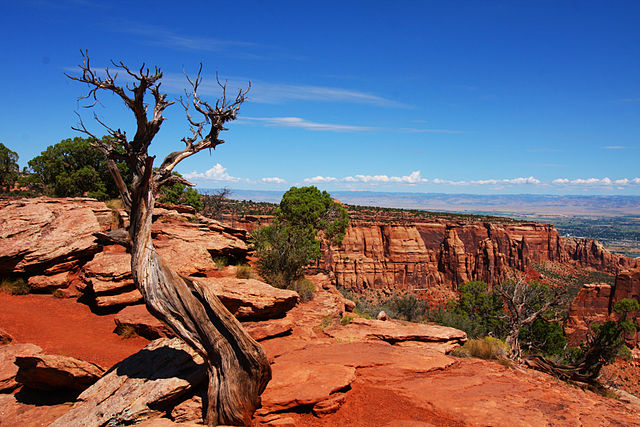The US Government Owns Almost Half of the Land in the American West; Supporting Through Revenue-Sharing Programs

Photograph: Wikipedia, by Rennett Stowe, The American West
A team at Stanford created an interactive website to shed light on the money the federal government has paid to counties and states in the American West over time in turn for controlling parts of their lands. See website here.
By Alex Shashkevich
To this day the US government owns almost half of the land in the American West.
That level of control has been debated ever since the government began acquiring the areas in the 19th century, with some Westerners resenting the vastness of the federal authority, which amounts to 47 percent of land in 11 states. Some states, like Nevada, where the government owns 84.5 percent of the land, see more control than others.
But few know about the existence and history of revenue-sharing programs, with some dating to 1906, through which the federal government has been compensating states and counties for lost tax revenue on the lands it controls.
Now, thanks to historian Joseph 'Jay' Taylor's research and a team at Stanford’s Center for Spatial and Textual Analysis (CESTA), the history and geography of those programs are presented in Follow the Money: A Spatial History of In-Lieu Programs for Western Federal Lands, an interactive website that maps federal payments made to counties and states in the American West over the past 100 years.
"This project exposes material that's never been published, let alone mapped before," said Erik Steiner, co-director of Stanford's Spatial History Project at CESTA.
Pages: 1 · 2
More Articles
- National Archives Records Lay Foundation for Killers of the Flower Moon: The Osage Murders and the Birth of the FBI
- Nichola D. Gutgold - The Most Private Roosevelt Makes a Significant Public Contribution: Ethel Carow Roosevelt Derby
- Oppenheimer: July 28 UC Berkeley Panel Discussion Focuses On The Man Behind The Movie
- "Henry Ford Innovation Nation", a Favorite Television Show
- Julia Sneden Wrote: Going Forth On the Fourth After Strict Blackout Conditions and Requisitioned Gunpowder Had Been the Law
- Jo Freeman Reviews: Gendered Citizenship: The Original Conflict Over the Equal Rights Amendment, 1920 – 1963
- Jo Freeman Writes: It’s About Time
- Jo Freeman Reviews: Lady Bird Johnson: Hiding in Plain Sight
- Women in Congress: Biographical Profiles of Former Female Members of Congress
- Updated With Key Takaways: Watch on YouTube House Select Committee Hearings at House on January 6th: "So many citizens are downplaying on what happened that day"






